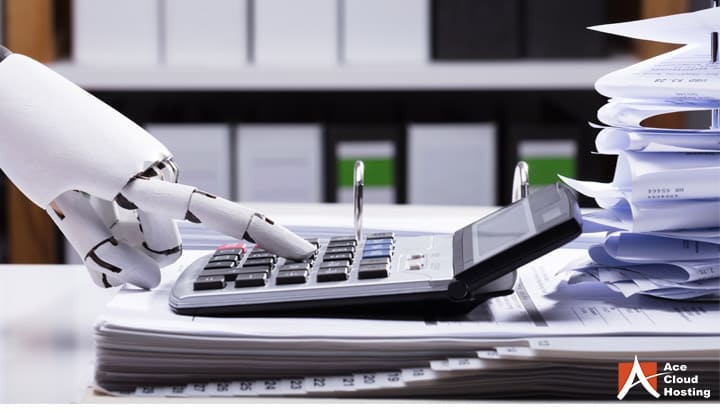
Cindy Mvura ARTIFICIAL intelligence (AI) is the ability of a computer programme or machine to perform certain tasks ordinarily done by humans. These programmed machines have the ability to think just like humans and learn as well. In audit and accounting, AI is frequently used in the accomplishment of tasks repetitive in nature. These include data recording, account reconciliations, data analysis and manipulation as well data entry captured from scanned invoices, just to mention a few.
How it affects current work Currently, AI has impacted the work environment positively. In audit, these embedded set of rules (algorithms) can be used to identify patterns and irregularities within given set of data.
This entails that auditors are more efficient, identify more risk areas for focus and execute many varying tasks. Additionally, where auditors would invest huge amounts of time, analysing contracts (for an example leases) or other legal documents, with the use of optical character recognition to interpret and correctly code, AI can easily extract information from these associated contracts or other documents thereby saving time.
These applications are also used to detect fraudulent activities and identify duplicate payments. Moreover, AI can be used to test journal entries and discover doubtful entries. Audit risk can considerably be reduced as 100% testing of transactions is possible instead of sample testing few transactions.
In accounting, as most tasks are monotonous, the accountants will shift focus from these tasks that can be effortlessly handled by the software robots (bots).
Given the volume of transactions in some organisations, these bots can work faster and more accurately as compared to humans wherein the humans can focus more on areas that actually require their intelligence.
With time ever-moving so fast, decision making for management and shareholders can be improved as reports can be extracted and analysed faster. For example, periodic closing of books of accounts can be achieved with faster reconciliations or matching bank statement transactions to general ledger transactions.
With the books of accounts closed, this means financial statements and reports can be prepared timely and decisions made. The real-time analysis of data provides a competitive advantage above organisations still relying on manual processes.
- Chamisa under fire over US$120K donation
- Mavhunga puts DeMbare into Chibuku quarterfinals
- Pension funds bet on Cabora Bassa oilfields
- Councils defy govt fire tender directive
Keep Reading
In light of these labour-intensive and time-consuming processes, by implementing automation, the audit and accounting teams can do so much more.
Advantages and disadvantages There are numerous advantages of AI in both audit and accounting fields. These include:
- Tasks are performed faultlessly and thereby reducing human error;
- Work is done and results delivered faster;
- AI is especially useful for repetitive tasks;
- Audit quality is improved as well as increase the speed of audits completion;
- Auditors have ample time for data review and analysis;
- Auditors and accountants are more able to focus on the higher risk areas;
- Bots never get fatigued or bored implying they are available 24/7 for tasks; and
- Mainly organisations with voluminous transactions would benefit from AI;
- On the other hand, AI has disadvantages which include:
- Risk of redundancy since AI is substituting most of the repetitive tasks;
- Lack of emotions which is essential for team members as machines cannot develop that bond as team players;
- High costs of implementation and maintenance i.e. hardware and software require to be up to date with latest technology;
- Humans becoming lazy as majority of the work will be automated; and
- Organisations might be exposed to cyber-risks as system manipulations could “poison” and corrupt the data
Future of AI — auditors The future of many professions is unclear with AI taking over. However, the understanding is that yes some jobs will be irrelevant but simultaneously new roles and opportunities will arise.
The reality is bots will not take our jobs but may become our new co-workers. Bots have the capacity to perform most of the tasks done by humans, but they cannot replace the experience and professional judgment only humans can.
In order to increase productivity, AI will work along humans but accountability will still lie with humans and this is more valuable.
Indeed, the introduction of AI to organisations is a game-changer in increasing efficiency and effectiveness of businesses. As outlined above, artificial intelligence has enormous potential advantages presently as well as for the future.
Auditors and accountants expectations
In order to make the most of AI and its benefits, auditors and accountants should embrace change. AI is to increase productivity and improve the workload.
Additionally, humans should be flexible and adaptable. Bots will work alongside humans and therefore resistance should be minimised as the aim is to achieve better quality results for organisations in an efficient manner.
Humans should value themselves and skills they possess as much as bots can work independently, human intervention will always be required. Focus should be kept in the mind of humans on the purpose of AI. AI is a means to improve tasks, improve efficiency and increase productivity but not to replace humans.
Humans can also become more innovative, as this gives an upper hand over AI.
AI cannot think outside the box and function with set of commands pre-installed. However, humans can think and identify more areas AI can be applied at the same time safeguarding their jobs.
Another point would be for auditors and accountants to take advantage of technology. Technology with its advantages will in turn save extra time for humans for more challenging tasks, decision making and potentially gain well-deserved family time.
Lastly, it is essential for human upskilling.
Auditors and accountants can invest themselves in broadening their knowledge, improving their IT/coding skills as well as becoming more tech savvy to be indispensable key players in the future of AI.
- Mvura CA(Z) is the Institute of Chartered Accountants of Zimbabwe’s United Arab Emirates Chapter treasurer. — [email protected]











